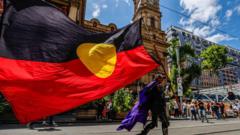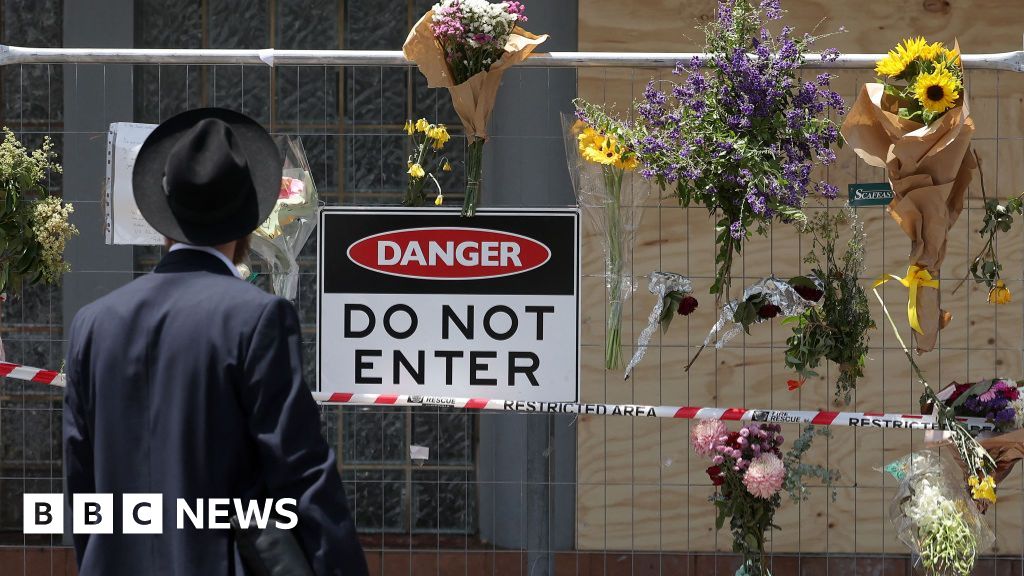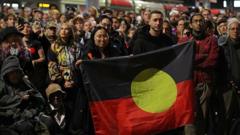In Yarrabah, a small community in Far North Queensland, signs of an upcoming national election are muted, with political candidates' presence virtually absent. Suzanne Andrews, CEO of Gurriny Yealamucka Health Services, reflects on the silence surrounding Indigenous concerns, noting that neither Prime Minister Anthony Albanese nor Opposition leader Peter Dutton are engaging with First Nations issues during their campaigns. Instead, the focus has shifted, especially following the rejection of the Voice to Parliament referendum, which sought to enhance Indigenous representation in government.
The ramifications of this political silence are profound. Indigenous Australians, who make up roughly 3.8% of the population, continue to face severe socio-economic disadvantages. Many community advocates express disappointment that the momentum built around Indigenous rights leading up to the referendum has dissipated into a void of political accountability. Commentary from political figures underscores a growing apprehension to address these complex issues, as they are perceived as divisive and electorally risky.
Lidia Thorpe, an independent senator, criticizes current leaders for abandoning serious discussions on Indigenous policies, emphasizing the need for open acknowledgment of injustices faced by First Nations peoples. In stark contrast to previous elections, where Indigenous issues were merely peripheral, this year's political landscape is disturbingly quiet.
As election campaigning progresses, Indigenous communities are caught in a silence that many fear will only worsen their circumstances. Data indicates that public interest in addressing the gap in living standards for Indigenous Australians has waned, reflecting a broader societal disengagement from this critical issue.
Despite ongoing efforts like the government's Closing the Gap strategy, progress in reducing Indigenous disadvantage is stagnating. According to experts, without meaningful engagement from political leaders, the crucial discussions necessary for initiating real change are at risk of being ignored entirely. As the political arena shifts its focus away from voices that desperately need to be heard, Indigenous Australians remain hopeful yet wary, yearning for a future where their concerns can no longer be silenced.
The ramifications of this political silence are profound. Indigenous Australians, who make up roughly 3.8% of the population, continue to face severe socio-economic disadvantages. Many community advocates express disappointment that the momentum built around Indigenous rights leading up to the referendum has dissipated into a void of political accountability. Commentary from political figures underscores a growing apprehension to address these complex issues, as they are perceived as divisive and electorally risky.
Lidia Thorpe, an independent senator, criticizes current leaders for abandoning serious discussions on Indigenous policies, emphasizing the need for open acknowledgment of injustices faced by First Nations peoples. In stark contrast to previous elections, where Indigenous issues were merely peripheral, this year's political landscape is disturbingly quiet.
As election campaigning progresses, Indigenous communities are caught in a silence that many fear will only worsen their circumstances. Data indicates that public interest in addressing the gap in living standards for Indigenous Australians has waned, reflecting a broader societal disengagement from this critical issue.
Despite ongoing efforts like the government's Closing the Gap strategy, progress in reducing Indigenous disadvantage is stagnating. According to experts, without meaningful engagement from political leaders, the crucial discussions necessary for initiating real change are at risk of being ignored entirely. As the political arena shifts its focus away from voices that desperately need to be heard, Indigenous Australians remain hopeful yet wary, yearning for a future where their concerns can no longer be silenced.



















